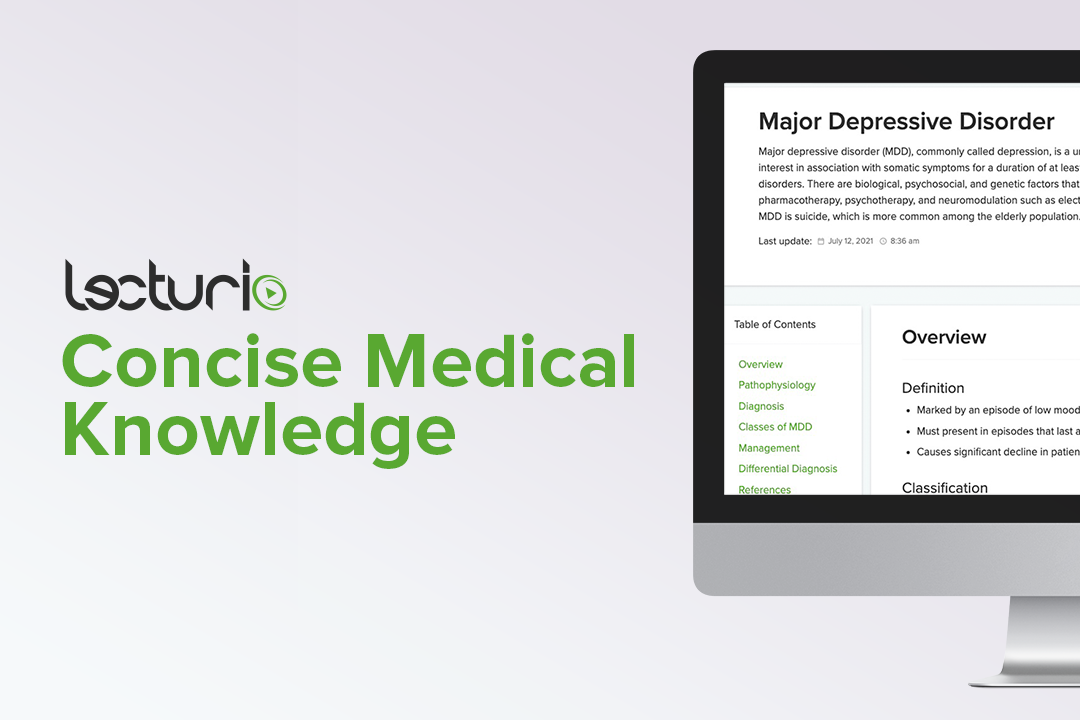Playlist
Show Playlist
Hide Playlist
Understanding Psychological Disorders: Classifying – Psychological Disorders (PSY)
-
Slides Psychological Disorders.pdf
-
Reference List Psychology and Sociology.pdf
-
Download Lecture Overview
00:00 Now, why do we want to study an exam in psychological disorders? Well, it's kind of important because 1, you need to identify and better understand what are the symptoms associated with each. And then next figure out ___ what is the problem and 3rd how common is this? Because as we'll see today, there is a whole slew of different psychological disorders. 00:22 It's not so cut and dry, you have lots of overlap, you have a whole bunch of variety, and it is almost overwhelming to assess somebody and try to establish what physical disorder they might have because you need a good understanding of the symptoms associated with each. 00:40 And then you need to figure out well, how do I treat that once you've identified it. And then how common is this. So how do we do that and how is this all documented? Well, we have the bible which is the DSM or the Diagnostic and Statistical Manual of Mental Disorders, and it's put up by the American Psychological Association and they've had several renditions and this has been around for years and the most recent one that's out right now is the DSM-5-TR and what it does is it actually tries to categorize and outline all the different types of psychological and mental disorders and it defines them. It'll talk about the pathogenesis, we'll talk about what are some of the characteristics that you see, treatment options, might even mention prevalence and so it's a way to say well it's in the DSM so this is, you know, a) legitimate and b) because it's documented I have some better understanding of the variables and characteristics around it and I might also have some treatment options. 01:34 So, the DSM is adapted to a line with current evidence and practice and what we're saying here is that they keep coming up with newer versions as we begin to understand more. So that being said, the DSM really hasn't changed a lot over the last few years. I think the gap between the most recent versions of the DSM-5 and the 4 was, I believe, almost 20 years. 01:56 So I think it's 19 years. So in that 19 years, it's not like we've, you know, rewritten the book. 02:02 We've simply added a few things, rejig the organization because of our understanding but the idea is we have one place where somebody can go to and really try to figure out what it is that's ailing you. We also have something else called the International Statistical Classification of Diseases and Related Health Problems called the ICD, a lot easier to say ICD than that whole name and it's put out by the World Health Organization and again what we do here is we have different codes and a map of all the different disorders and how they are linked. And so as a psychologist or a physician you can write down the ICD code for, say for example, somebody is suffering from generalized anxiety disorder. That would have an ICD code, you can see where it fits in the grand scheme of things, you could refer to the DMS-5 and look at some of the characteristics and symptoms to make sure that they align with your assessment of your patient who is in front of you.
About the Lecture
The lecture Understanding Psychological Disorders: Classifying – Psychological Disorders (PSY) by Tarry Ahuja, PhD is from the course Individual Influences on Behavior.
Included Quiz Questions
Which of the following statements about the DSM is FALSE?
- It offers the only treatment guidelines for psychiatric diseases.
- It gives diagnostic guidelines for psychiatric diseases.
- It stands for diagnostic and statistical manual of mental disorders.
- It provides updates on the latest changes in psychiatric diseases.
- It guides physicians on the nature of psychiatric disorders.
What is the latest DSM edition?
- 5
- 4
- 10
- 8
- 3
Customer reviews
4,0 of 5 stars
| 5 Stars |
|
0 |
| 4 Stars |
|
1 |
| 3 Stars |
|
0 |
| 2 Stars |
|
0 |
| 1 Star |
|
0 |
Presentation nice and to the point.Each lecture is clear and relevant to today's syllabus.




